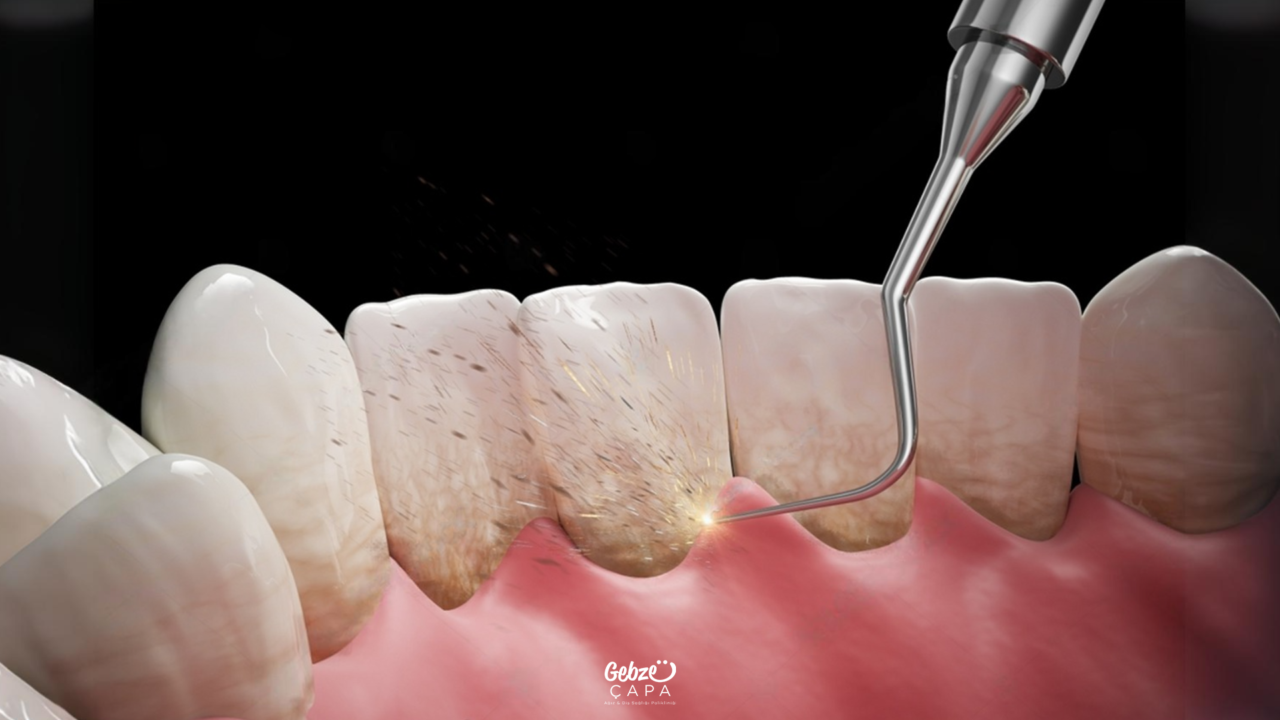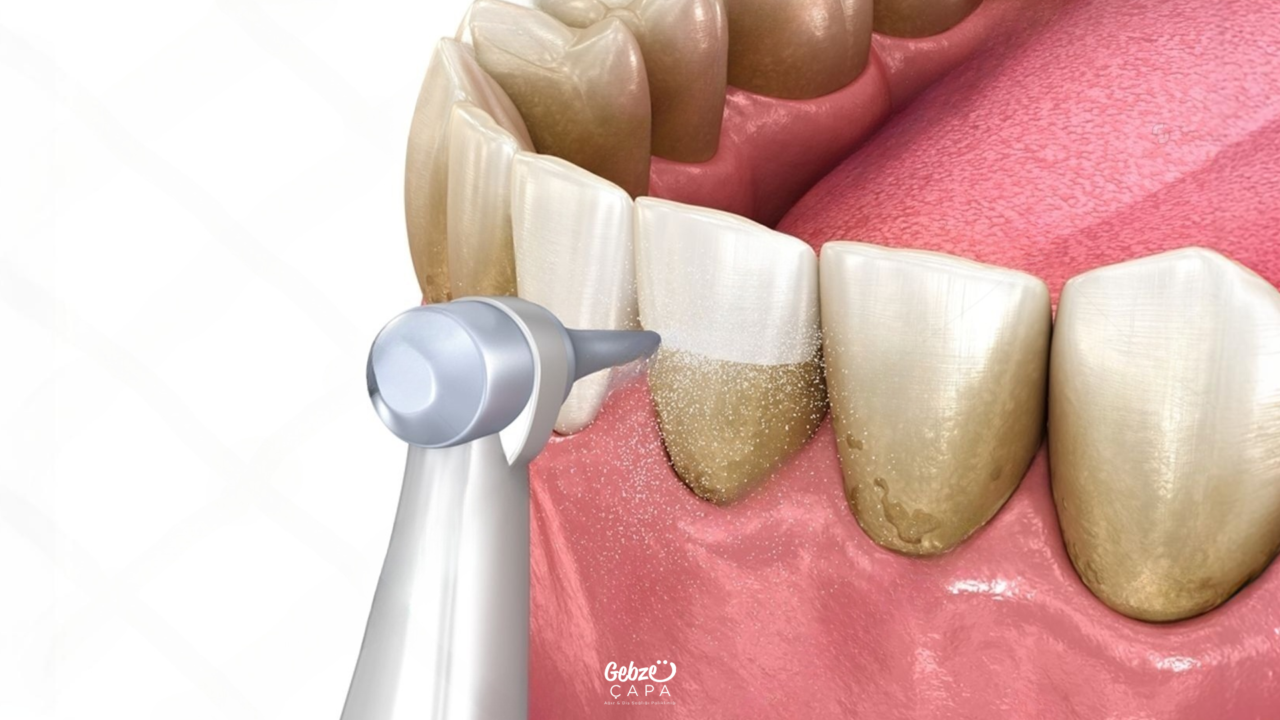Dental Stone Cleaning
Dental health is an essential part of our overall health, and our oral health can directly affect the rest of our body. Therefore, taking proper care of our teeth and gums is critical not only for a beautiful smile, but also for our long-term health. When most people think about dental health, the first thing that comes to mind is tooth decay and they take various precautions to prevent tooth decay. However, other significant dental problems, such as tartar, can often be overlooked.
Dental tartar consists of plaque that accumulates on the surface of our teeth and hardens over time. Plaque is a sticky film composed of food debris, saliva and bacteria. If plaque is not removed regularly, it accumulates along the gum line, hardens and becomes tartar. Dental tartar is not only an aesthetic problem; It can also lead to gum disease, tooth loss and other serious oral health problems.
What is Dental Stone?
Tartar is hardened plaque that accumulates on your teeth and below your gum line. Plaque is formed by the accumulation of food debris, saliva and bacteria. When you don’t brush or floss your teeth regularly, this plaque hardens and turns into tartar, known as tartar. Tartar creates a yellowish or brownish appearance on your teeth and is one of the most common causes of gum disease.
How is Dental Stone Formed?
Dental tartar is formed as a result of mineralization of deposits that accumulate on our teeth and harden over time. This process occurs if dental plaque is not removed regularly. Plaque is a sticky, colorless film composed of food debris, saliva and bacteria. If plaque is not removed in time, these deposits begin to accumulate at the gum line and on the tooth surface. Over time, the minerals in plaque harden and turn into dental stone. Tartar is a serious problem that not only forms a hard structure on the teeth, but also threatens the health of the gums.
The process of tartar formation can be quite insidious, as plaque may initially be clear or whitish in color and difficult to detect. However, when plaque hardens and mineralizes over time, it becomes tartar, and this hardened structure usually turns yellow or brown. This discoloration is a clear indicator of tartar formation and often negatively affects the appearance of your teeth.

What are the Harms of Dental Stone?
The biggest harm of dental stone is that it can cause gum diseases. Tartar puts pressure on the gum tissue, causing gingivitis. This condition manifests itself with symptoms such as redness, swelling and bleeding in the gums. Left untreated, gingivitis can turn into periodontitis; This is a more serious gum disease in which the bone and tissues that support the teeth are destroyed. Periodontitis is a serious health problem that can cause tooth loss.
In addition, tartar can cause bad breath (halitosis). Tartar is a perfect environment for bacteria to reside, and these bacteria can cause bad breath. Dental tartar can also negatively affect the appearance of teeth, causing them to appear yellow and dirty.
How is Dental Stone Cleaning Done?
Tooth stone cleaning is done professionally by dentists. This process involves removing tartar and plaque from the teeth and gum line. Dental scaling usually consists of the following steps:
- Tartar Removal (Scaling): The first stage of tartar cleaning is the removal of tartar from the tooth surface and gum line by the dentist using special tools. During this process, ultrasonic devices or hand tools can be used. Ultrasonic devices break up dental plaque with high-frequency vibrations and remove it with water spray.
- Root Planing: This process is performed to clean and smooth the root surfaces below the gum line. Root planing promotes the reattachment of gum tissue to the teeth and reduces gingivitis.
- Tooth Polishing: After scaling, the surfaces of the teeth are polished with a toothpaste-like substance. This process makes the teeth look smoother and brighter and makes it harder for plaque to stick to the teeth.
- Fluoride Application: After scaling, fluoride can be applied to strengthen the teeth and protect them against decay. Fluoride is a mineral that strengthens tooth enamel and reduces the risk of caries.
How to Prevent Dental Stone Formation?
The best way to prevent tartar formation is to perform regular and correct oral care. Brush your teeth at least twice a day, preferably using a fluoride toothpaste, and clean between your teeth with dental floss. Also, visit your dentist regularly; Your dentist can detect tartar formation at an early stage and take the necessary precautions.

Does Dental Stone Fall Out on Its Own
Dental tartar consists of hardened plaque deposits on the surface of the teeth and unfortunately does not fall off on its own. Dental tartar occurs as a result of the plaque layer mineralizing and hardening over time. This hard structure cannot be cleaned with daily oral care tools such as a toothbrush or dental floss. Dental tartar can only be removed by a professional cleaning performed by a dentist, that is, scaling (abortion).
When tartar accumulates along the gum line, it can lead to gum disease. This can cause inflammation of the gums, bleeding, and serious problems that can lead to tooth loss in later stages. If the tartar is not cleaned, problems such as bad breath, receding gums and tooth sensitivity may occur.


